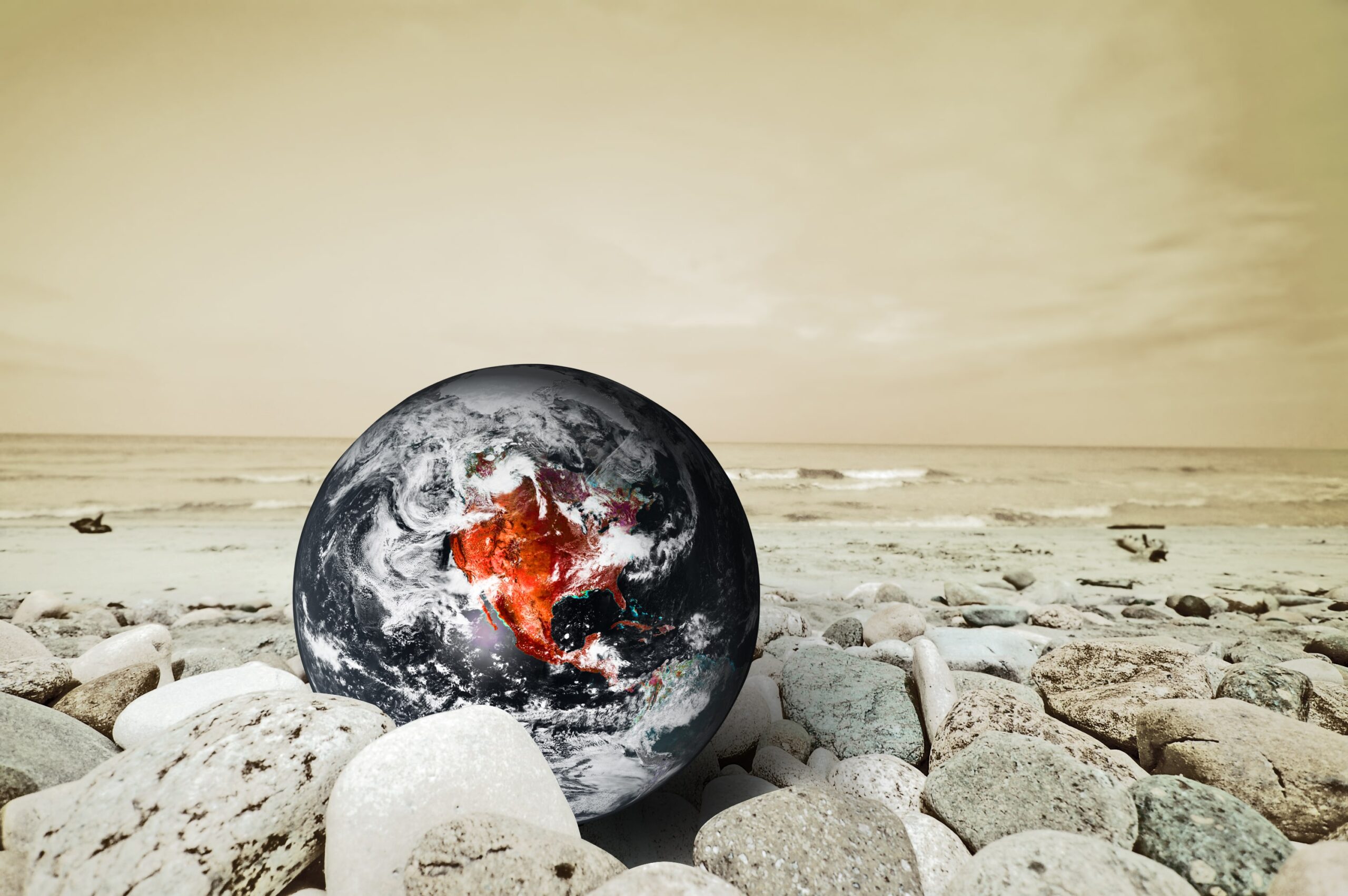“Wake up before it is too late.” Global warming and climate change.
Global warming is the long-term warming of the planet’s overall temperature. Though this warming trend has been going on for a long time, its pace has significantly increased in the last hundred years due to the burning of fossil fuels. As the human population has increased, so has the volume of fossil fuels. Global warming refers to a steady and consistent rise in global temperatures and is therefore only one aspect of the broader phenomenon of climate change.
Though the Earth’s temperature fluctuates over long periods (hundreds to thousands of years), the term global warming most commonly refers to the rising temperatures brought on by human activities over the last 100 to 150 years. This increase is caused by an excess of greenhouse gas emissions (carbon dioxide, nitrous oxide, methane, ozone, and water vapor) in the Earth’s atmosphere – mainly due to the burning of fossil fuels since the Industrial Revolution. As the level of emissions trapped in the Earth’s atmosphere continues to rise, so do global temperatures. This adds enormous amounts of greenhouse gases to those naturally occurring in the atmosphere, increasing the greenhouse effect and global warming.
These gases build up and trap heat from the sun. If it weren’t for those gases, that heat would normally be radiated back out into space. Instead, the sun’s energy stays within the Earth’s atmosphere, causing the hothouse (greenhouse) effect first observed by Arrhenius back in the 1800s.
Every year over the past decade, CO2 concentrations (the most common greenhouse gas) have been steeply rising and are now at their highest levels in more than 60 years of observation. 2016 was the hottest year on record, with 2020 coming number #2 as the Earth’s second hottest year.
Climate change, on the other hand, is a long-term change in the Earth’s weather patterns brought on by those same greenhouse gas emissions. While climate change includes rising global temperatures, it also comprises many other impacts those greenhouse gases are having on the planet, which even includes some regions getting colder! Just as fluctuations in Earth’s temperature are natural, a changing climate is a natural aspect of life on Earth. Systems like El Niño and La Niña can cause dramatic fluctuations in weather across large areas of the plant for months or even years. However, the term climate change refers to unexpected, abnormal, and longer-term changes brought on by human activity. The effects of climate change include a broad range of changes, which, over the last century, have become undeniable.
There have been more droughts, floods, and heatwaves, sea levels have risen, biodiversity has been lost, and wildfires and hurricanes have become more intense than ever before all of which point to a dramatically and rapidly changing climate.
Where global warming refers to one process (rising global temperatures due to increased greenhouse gas production), climate change encapsulates all the symptoms experienced as a result of pollution and greenhouse gas production damaging and altering our environment.
Furthermore, there’s a new term making waves and used with increasing frequency lately: “Climate Crisis”. Spurred partially by the youth climate movement, climate crisis or climate emergency are now being used to reference the urgency with which we must address these challenges. A crisis sounds pretty scary, as does the prospect of increasing environmental disasters, so maybe we haven’t been doing ourselves any favors by sugarcoating it all these decades.
Human-induced global warming is presently increasing at a rate of 0.2°C per decade.
An increase of 2°C compared to the temperature in pre-industrial times is associated with serious negative impacts on the natural environment and human health and well-being, including a much higher risk that dangerous and possibly catastrophic changes in the global environment will occur.
For this reason, the international community has recognized the need to keep warming well below 2°C and pursue efforts to limit it to 1.5°C.
CO2 produced by human activities is the largest contributor to global warming. By 2020, its concentration in the atmosphere had risen to 48% above its pre-industrial level (before 1750).
Other greenhouse gases are emitted by human activities in smaller quantities. Methane is a more powerful greenhouse gas than CO2 but has a shorter atmospheric lifetime. Nitrous oxide, like CO2, is a long-lived greenhouse gas that accumulates in the atmosphere over decades to centuries. Non-greenhouse gas pollutants, including aerosols like soot, have different warming and cooling effects and are also associated with other issues such as poor air quality.
Natural causes, such as changes in solar radiation or volcanic activity are estimated to have contributed less than plus or minus 0.1°C to total warming between 1890 and 2010.
In order to stop global warming completely, CO2 emissions have to reach net zero worldwide. Reducing emissions of other greenhouse gases, such as methane, can also have a powerful effect on slowing global warming—especially in the short term. Countering climate change and adapting to a warming world should be the top priorities for every nation.
I feel that one cannot solve the problem of intensifying storms, prolonged droughts, or exceptional flooding without addressing the factors causing global warming simultaneously. And there are many solutions out there like reducing our dependence on fossil fuels is obviously at the top of the list, along with switching to renewable energy sources, like solar or wind power. We can also end wide-scale deforestation, a major global contributor to CO2 emissions, and plant trees instead. In the end, anything that can reduce the amount of greenhouse gases in the atmosphere will help to slow and reverse global warming and reduce the impact of climate change.
Article written by and Editorial credit: State Bureau Chief Himanshu Nauriyal.
